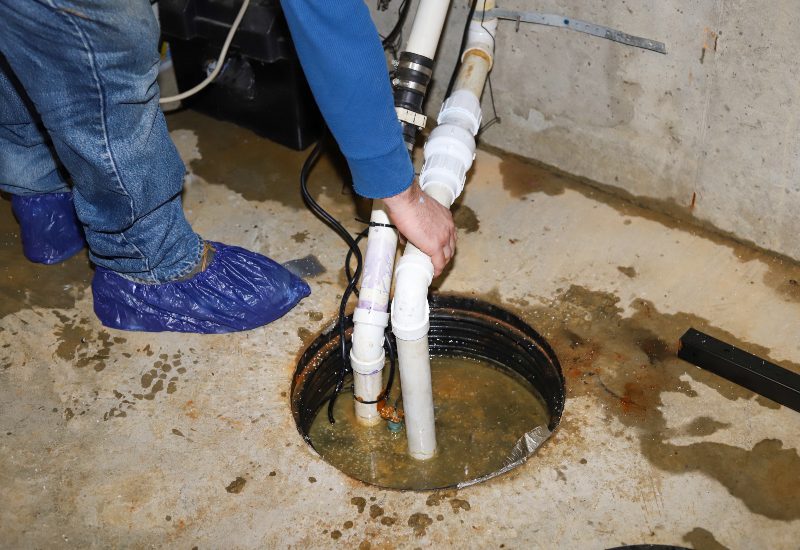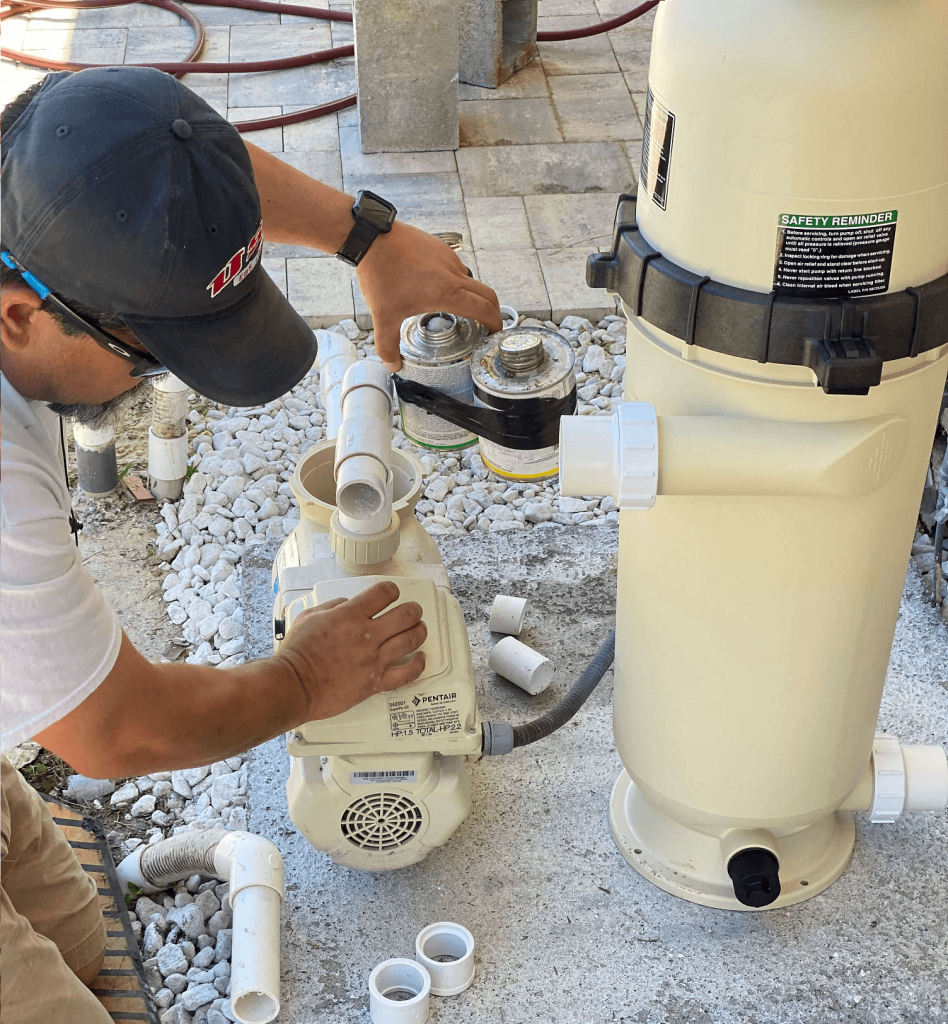Comprehending the Secret Parts of Effective Water Filtering Equipments

Value of Water Filtering Systems
Water filtration systems play a critical function in making sure access to tidy and risk-free alcohol consumption water by efficiently getting rid of contaminants and impurities. These systems are vital in attending to the growing problems over water high quality and the potential wellness dangers related to taking in contaminated water. By using various purification devices such as reverse osmosis, triggered carbon, and UV sanitation, water filtering systems can successfully get rid of harmful compounds like bacteria, infections, hefty metals, and chemicals from the water supply.
Additionally, water filtering systems help to enhance the taste and smell of water by eliminating chlorine, sediments, and various other pollutants that can impact its top quality. Pump repairs & installation. This improvement in water quality not only makes it much more tasty yet additionally urges people to consume alcohol an adequate amount of water daily, promoting much better hydration and general wellness
Sorts Of Filtering Parts

Physical filters are made to literally strain out impurities from the water. These filters can be made from products like ceramic, carbon, and even sand, and they work by trapping particles larger than the filter's pores as water passes via.
Chemical filters make use of various chemical processes to remove contaminants from the water. Examples include triggered carbon filters, which adsorb pollutants, and turn around osmosis membrane layers, which make use of stress to different impurities from the water.
Organic filters make use of living microorganisms like microorganisms or algae to damage down raw material and contaminants in the water. These filters are usually made use of in wastewater therapy plants or all-natural water filtration systems.
Recognizing the various sorts of purification elements is critical for picking one of the most ideal water purification system for details filtration demands.
Feature of Debris Filters
Debris website here filters play a critical role in water purification systems by effectively recording strong fragments suspended in the water. These filters are usually the very first line of defense in a purification system, getting rid of bigger bits such as sand, silt, dirt, and rust prior to the water relocates through finer filtration phases. By trapping these sediments, the filters stop them from getting to downstream components, hence prolonging the life expectancy and efficiency of the whole system.
Overlooking this upkeep can lead to clogging, minimized water flow, and endangered filtration effectiveness. Overall, sediment filters are vital components that contribute substantially to the performance of water filtration systems.
Function of Turned On Carbon Filters
Playing an important duty in water filtration systems, activated carbon filters are crucial in removing impurities and pollutants from the water system. These filters are made to adsorb and trap a broad variety of toxins, consisting of chlorine, volatile organic compounds (VOCs), pesticides, and herbicides. The triggered carbon material has a big surface location, permitting for the effective trapping of impurities with a process called adsorption. As water goes through the filter, the turned on carbon holds and attracts onto the impurities, guaranteeing that the water that appears beyond is cleaner and much safer for consumption.
Triggered carbon filters are highly efficient at improving the preference and odor of water by decreasing chemicals that can affect its high quality. Due to their flexibility and reliability, turned on carbon filters are an essential part in making sure that water is purified to the greatest standards prior to getting to consumers.
Recognizing Reverse Osmosis Solutions
Reverse osmosis systems are advanced water filtering systems that employ an advanced procedure to remove contaminants and contaminations from drinking water. These systems that site function by applying stress to the water, forcing it with a semi-permeable membrane layer. This membrane functions as an obstacle, allowing only distilled water molecules to go through, while blocking bigger particles look at here now such as minerals, chemicals, and other pollutants. Because of this, the water that comes out beyond is significantly cleaner and safer for usage.
Furthermore, reverse osmosis systems are relatively low-maintenance and can be installed under the sink or in a central purification system, supplying convenient access to clean water throughout the household. On the whole, recognizing exactly how reverse osmosis systems work can help people make notified decisions about their water purification demands.
Verdict
In verdict, efficient water purification systems are important for ensuring tidy and safe alcohol consumption water. By understanding the feature and duty of each element, people can make educated choices when selecting a water purification system.
Water filtration systems play an essential duty in ensuring access to tidy and safe drinking water by successfully eliminating contaminations and impurities. By making use of different purification systems such as reverse osmosis, triggered carbon, and UV sterilization, water filtering systems can efficiently eliminate harmful materials like microorganisms, infections, heavy metals, and chemicals from the water supply.
Debris filters play a critical function in water filtration systems by efficiently catching strong fragments put on hold in the water (Water Softeners).Playing a crucial role in water filtration systems, triggered carbon filters are important in eliminating pollutants and pollutants from the water supply.Reverse osmosis systems are innovative water purification systems that use an innovative procedure to get rid of contaminants and impurities from alcohol consumption water